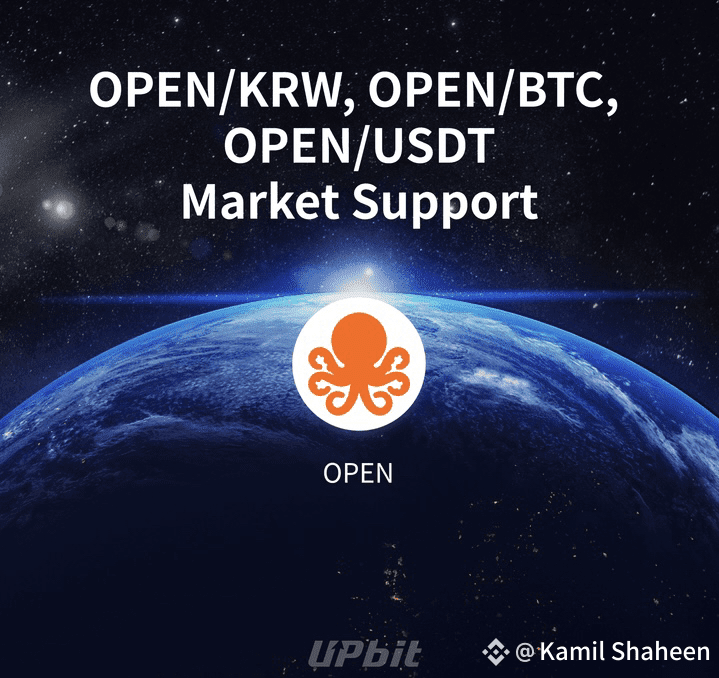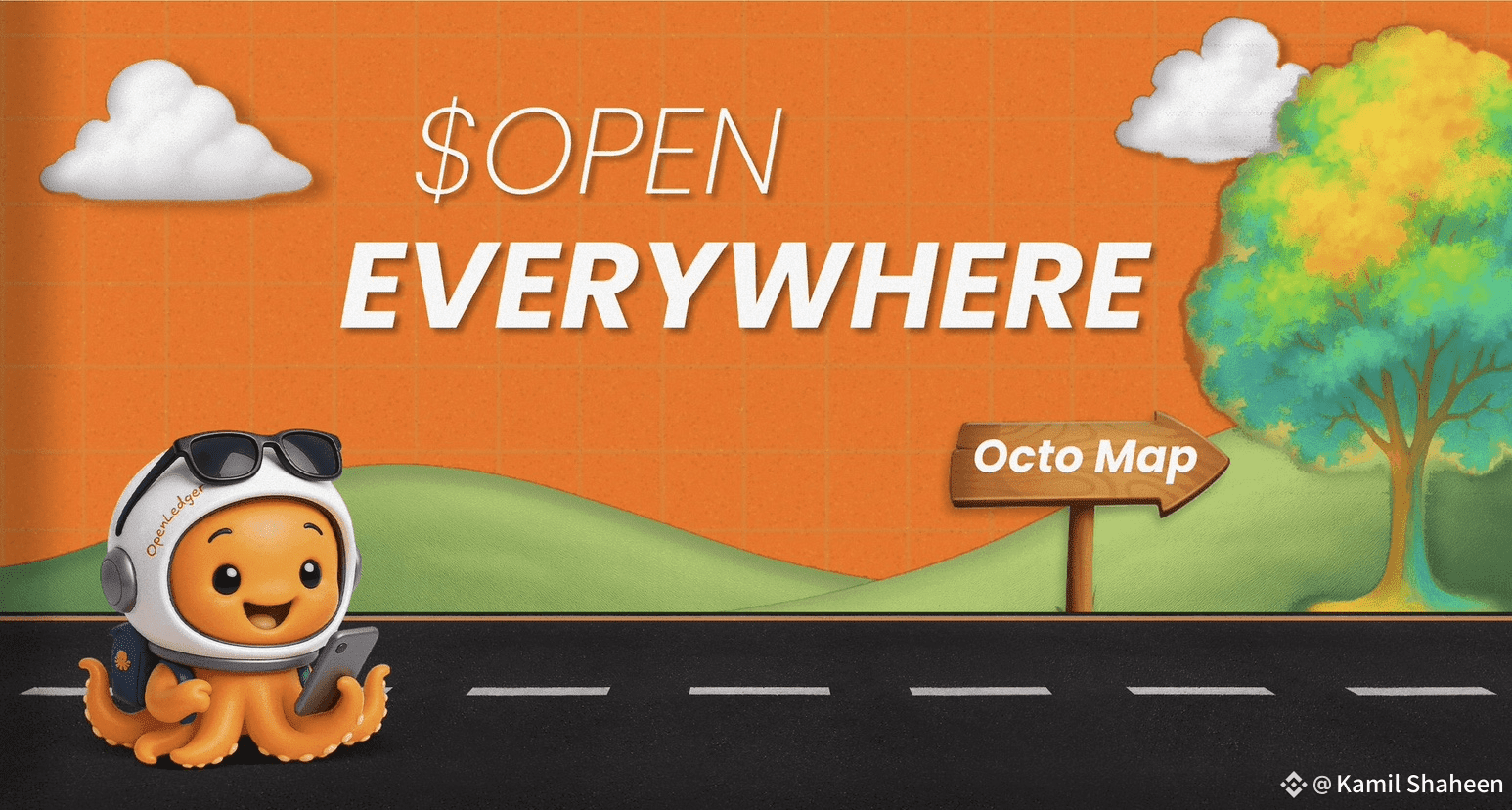Artificial intelligence is reshaping the world faster than any other technology in modern history. Yet behind every chatbot, recommendation system, or medical diagnostic tool lies an uncomfortable truth: the people who create the raw fuel—data, expertise, and creative input—rarely see any recognition, let alone compensation. Big tech extracts value, centralizes profits, and leaves contributors invisible.
This imbalance is not just unfair; it is unsustainable. If intelligence is the new oil, then the extraction model we follow today will eventually burn out innovation, erode trust, and trigger a tidal wave of regulatory backlash.

OpenLedger (OPEN) was created to break this cycle. Its mission is bold but clear: design an economy where intelligence itself becomes a payable, auditable, and democratic asset.
Why AI Needs an Economic Reboot
The current AI ecosystem suffers from three critical flaws:
Invisible contributors. Datasets, domain expertise, and fine-tuning work vanish into black boxes owned by corporations.
Opaque models. No one can trace how a decision was made or who influenced it
Winner-takes-all economics. A handful of companies capture the wealth created by billions of human contributions.
OpenLedger challenges this status quo by embedding attribution and compensation at the protocol level. Instead of extracting intelligence, it enables people to own, trace, and monetize their contributions forever.
The Core Innovations of OpenLedger
1. Datanets: Turning Knowledge into a Payable Asset
Think of Datanets as community-owned data economies. Healthcare professionals, educators, financial analysts, or researchers can pool verified data into decentralized networks.
Here’s the difference: every time that data is used to train a model or guide an AI inference, the contributors earn. Data stops being a one-off sale and becomes intellectual property with recurring revenue.
For example:
A rare medical imaging dataset used in diagnostics could generate income for its contributors every time it powers a diagnosis
A niche financial dataset could earn analysts passive revenue whenever a trading model draws on it.
2. ModelFactory: AI Without Gatekeepers
OpenLedger’s ModelFactory lowers the barrier to entry. You don’t need to be a machine learning engineer to build useful AI. A teacher, lawyer, or radiologist can fine-tune models visually, plug into Datanets, and deploy services.
This flips the script: expertise itself becomes monetizable AI. Knowledge workers can turn their skills into intelligent services without surrendering them to big tech.
3. OpenLoRA: Specialization as a Market
Massive AI models are costly to train. But with OpenLoRA, small, lightweight adapters (LoRAs) can specialize base models for unique tasks.
Each adapter is tokenized as its own asset. If someone uses your adapter—for example, a radiology LoRA or a legal contract analyzer—you automatically get paid. This creates a marketplace for micro-specializations, where the long tail of expertise finally has economic weight.
Proof of Attribution: The Breakthrough
At the heart of OpenLedger lies Proof of Attribution (PoA) — the protocol that makes payable AI possible.
Traditionally, AI operates like a black box. You can’t trace which data influenced an answer, or which model contributed to an output. PoA changes this by combining interpretability techniques with blockchain records:
Tracking: Every AI output is traced back to the datasets, models, and adapters that shaped it
Validation: Validators stake $OPEN to confirm attribution and ensure no fraud
Compensation: Smart contracts distribute rewards automatically to contributors.
This creates a transparent supply chain of intelligence.
Why It Matters
Perpetual Rewards. Contributions generate income forever, not just once.
Regulatory Alignment. Immutable audit trails make compliance with laws like the EU AI Act effortless.
Ethical Guardrails. Bias, misuse, or harmful outputs can be traced back to their origin, creating accountability.
In short, @OpenLedger OpenLedger solves the three biggest pain points of AI: fairness, compliance, and trust.
The OPEN Token: Currency of Payable Intelligence
The economy runs on the OPEN token (1 billion fixed supply). Its functions:
Gas & Fees: Pay for inferences, model access, and Datanet usage.
Rewards: Flow directly to data and model contributors through PoA.
Staking: Validators secure attribution records.
Governance: Community-driven upgrades and policies.
Importantly, over half the supply is earmarked for contributors, ensuring value flows to builders rather than speculators.
Positioning in the Decentralized AI Landscap
Other projects like Bittensor, Ocean Protocol, and Fetch.ai tackle parts of decentralized AI. But OpenLedger’s moat is unique:
Attribution at the protocol level. Without attribution, decentralized AI cannot achieve fairness or regulatory trust
Enterprise integration. In industries like healthcare and finance, provenance is not optional — it’s mandatory. OpenLedger offers it out of the box
Creator-first economy. Teachers, researchers, and professionals can monetize expertise directly, without corporate middlemen.
This positions OpenLedger not as a competitor to existing projects, but as the foundational infrastructure they will need to plug into.
The Vision: From Extractive AI to Payable AI
Imagine:
A musician uploads tracks into a Datanet. Each time an AI model generates music influenced by their work, they earn royalties
A hospital deploys diagnostic models with full provenance records, meeting compliance and boosting patient trust
A teacher builds a custom tutoring AI in ModelFactory and earns whenever it’s used globally.
This is Payable Intelligence — a system where innovation is rewarded, not extracte
Conclusion: OpenLedger as a New Social Contract
OpenLedger is not just another crypto project. It is a re-architecture of how intelligence is created, shared, and rewarded.
By embedding attribution and compensation into the protocol layer, it creates the conditions for a fair, transparent, and thriving AI economy.
The age of extractive AI is fading. The age of attributable, payable, community-owned intelligence is here.
And OpenLedger is writing that future into code.
#OpenLedger $OPEN @OpenLedger


